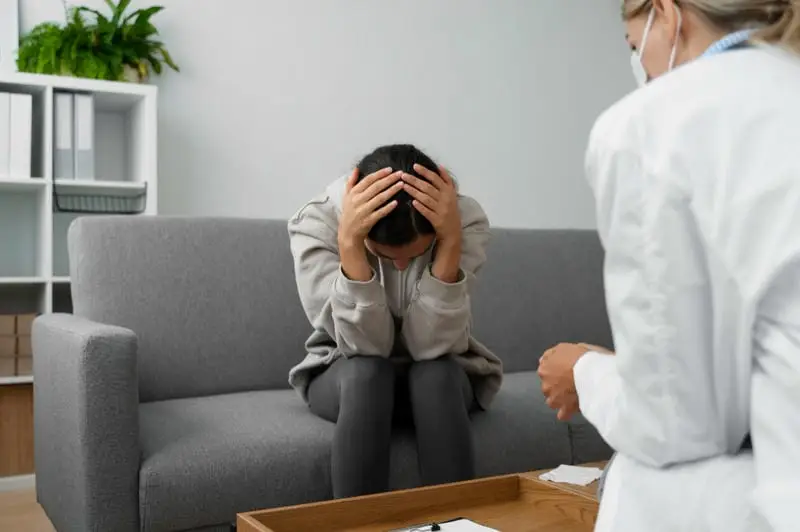- Published on: Aug 12, 2021
- 2 minute read
- By: SecondMedic Expert
Awareness Of Mental Health Its Basis And Importance
Have you ever given the complex issues of mental health any thought at all? What is contained in its domain? In a world where physical health is generally the center of attention, mental health is sometimes cast into the background by social stigma and misconceptions. However, what exactly is mental health, and why is it worthy of our serious consideration? Come along with us as we take a deep dive into the mysteries of mental health and reveal the truth about it.
Awareness of the Basic Rules of Mental Health
-
Defining Mental Health: Mental health encompasses our emotional, psychological, and social well-being. It influences how we think, feel, and act, shaping our daily lives and interactions.
-
Mental Health vs. Mental Illness: While mental health refers to overall well-being, mental illness pertains to conditions that affect one's thinking, mood, or behavior. Understanding this distinction is crucial in promoting mental health awareness.
-
Anxiety Disorders and Depressive Symptoms: Anxiety disorders and depressive symptoms are common manifestations of mental health challenges. They can significantly impact an individual's quality of life and functioning.
Improving Our Knowledge of Mental Health Conditions
-
Exploring Mental Health Diseases: Mental health diseases encompass a wide range of conditions, from anxiety and depression to schizophrenia and bipolar disorder. Each condition presents unique challenges and symptoms.
-
Symptoms and Effects: Symptoms of mental health diseases vary but may include persistent sadness, excessive worry, hallucinations, or erratic behavior. These symptoms can disrupt daily life and strain relationships.
-
The Importance of Early Intervention: Recognizing the signs of mental health diseases early can facilitate timely intervention and treatment. It's essential to seek help from qualified professionals to address these concerns effectively.
Mental Health Description and Online Doctor Consultation
-
Breaking the Stigma: Openly discussing mental health and seeking support can help break the stigma surrounding mental illness. By fostering a supportive environment, individuals are more likely to reach out for help without fear of judgment.
-
Understanding Mental Health Description: Describing mental health accurately involves acknowledging its complexities and nuances. It's not merely the absence of illness but a state of well-being where individuals can cope with life's challenges, work productively, and contribute to their communities.
-
The Role of Online Doctor Consultation: In today's digital age, online doctor consultation offers convenience and accessibility for individuals seeking mental health support. Virtual platforms provide a safe space to discuss concerns and receive professional guidance from licensed therapists or psychiatrists.
Mental Health Awareness and Support
-
Promoting Self-Care: Prioritizing self-care activities such as exercise, mindfulness, and adequate sleep can positively impact mental health. Encouraging healthy lifestyle habits is key to maintaining overall well-being.
-
Seeking Professional Help: If you or someone you know is struggling with mental health challenges, don't hesitate to seek professional help. Whether through online doctor consultation or traditional therapy, reaching out is the first step towards healing.
-
Advocating for Mental Health Awareness: Spread awareness about the importance of mental health in your community and beyond. Educate others, challenge stigma, and support initiatives that promote mental wellness for all.
Conclusion:
In essence, mental health transcends mere absence of illness—it embodies a cornerstone of holistic well-being. Through understanding its nuances, discerning signs of mental illness, and fostering support and awareness, we pave the path for a world where everyone can flourish mentally and emotionally. Let's unite in prioritizing mental health, extending hands of support on this journey towards comprehensive wellness.Remember, in the pursuit of mental health, you are not alone; assistance is readily available. Together, let's forge a brighter, healthier future—one where mental well-being isn't just prioritized but ingrained in our collective consciousness.As we navigate life's complexities, let's uphold compassion, empathy, and solidarity, creating a society where mental health thrives as a fundamental aspect of our shared existence. Together, we can break barriers, dissolve stigma, and foster an environment where everyone can flourish, embracing the richness of mental wellness.
Read FAQs
A. Mental health awareness is about understanding, acknowledging, and destigmatizing mental well-being issues. It's crucial for fostering empathy and support for those facing mental health challenges, encouraging access to resources and treatment, and promoting overall well-being.
A. Mental health basics involve understanding and managing emotions, maintaining healthy relationships, practicing self-care, and seeking support when needed. It also includes awareness of mental health issues, early intervention, and access to appropriate treatment.
A. Self-awareness and self-care are paramount in mental health. Recognizing and addressing one's emotions, seeking help when necessary, and nurturing supportive relationships are key to maintaining optimal mental well-being.









